Caring for a rabbit in cold weather and much more
In the cold months we must make some changes in the care of a domestic rabbit, regarding those we usually have the rest of the year. If you want a little more information, read on.
Preventive care
We must maintain the hygiene that we have been giving the rabbit, in a matter of its environment and its own cage. But also, before winter comes, we must vaccinate the rabbit. For it We will go to the vet who will administer the appropriate and specific vaccines for the coldest months of the year.
Caring for a rabbit: build a warm burrow
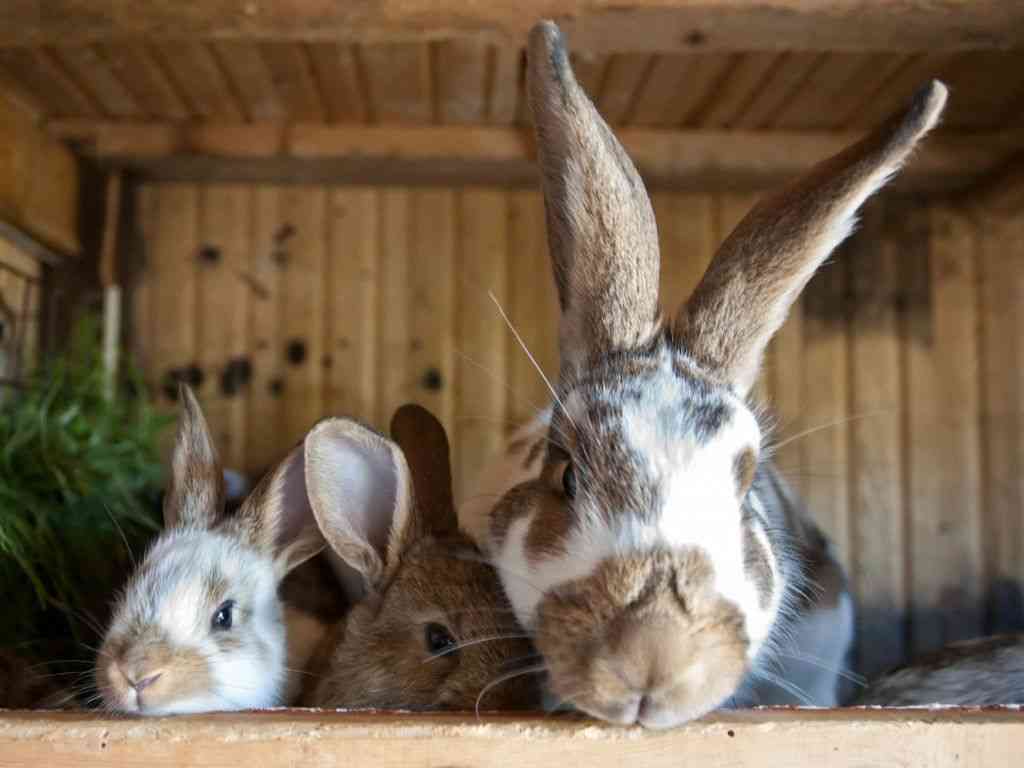
If your rabbit lives indoors, he may not have this need, but if it is usually all over the house and in the yard, a burrow may have already been made. If not, we will build or buy one ourselves.
In winter, it is advisable to check the burrow to protect it from the cold. Domestic rabbits that live in the yard or in the garden are not accustomed to the cold. In this way we must get a rabbit house and so sleep well warm. There are many houses to buy that are pretty good. Just try to make them big so that the rabbit has space.
Care of a rabbit: note that the burrow has no moisture
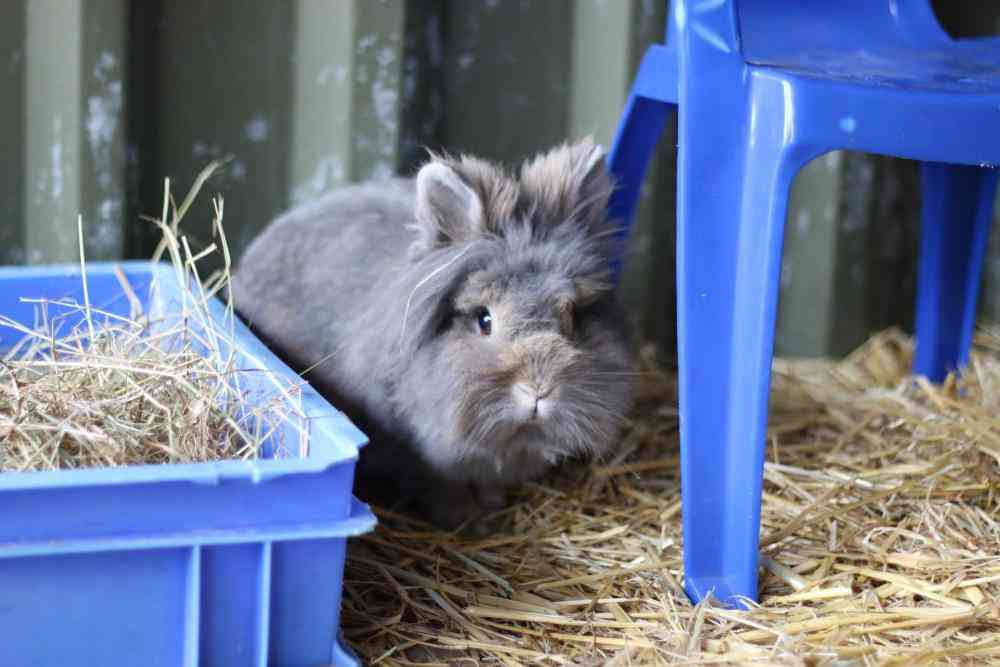
This part is one of the most important, in terms of rabbit care. Try that the burrow, made or purchased, has no broken areas, is waterproof and is in good condition. In addition we will check the wooden joints in which there should be no moisture. Check the roof, floor, corners and all we pick for moisture.
Wood joints and floorboards should be dry and not show watermarks that may indicate that the rain is leaking under the roof. Try to check all the walls and that the house, in general, is in good condition. The burrow must be resistant to moisture and rain, so that it does not penetrate inside. It is important to isolate the burrow from the ground. You can do this using a good bed of straw which we will change on a regular basis.
Caring for a rabbit: winter feeding
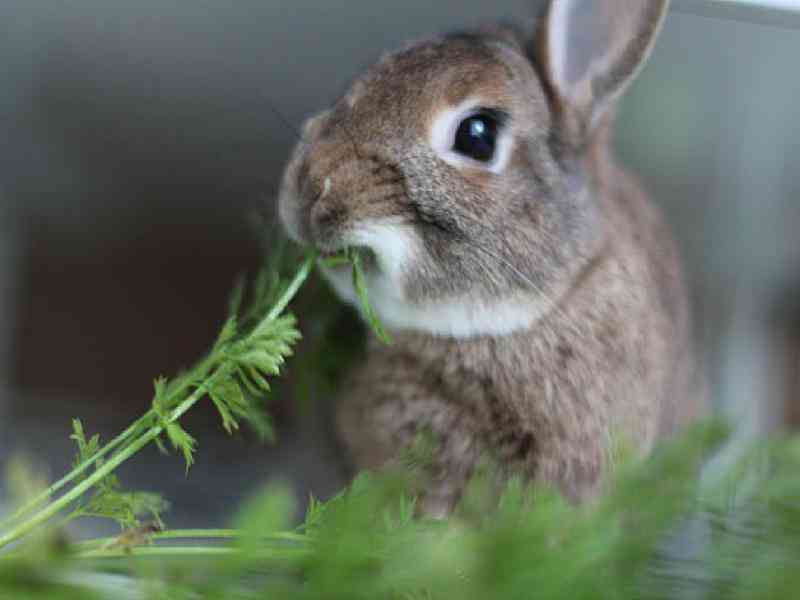
In winter, a domestic rabbit needs more food than during the less cold months. So we will try to put more daily food and hay.
Drinking fountain
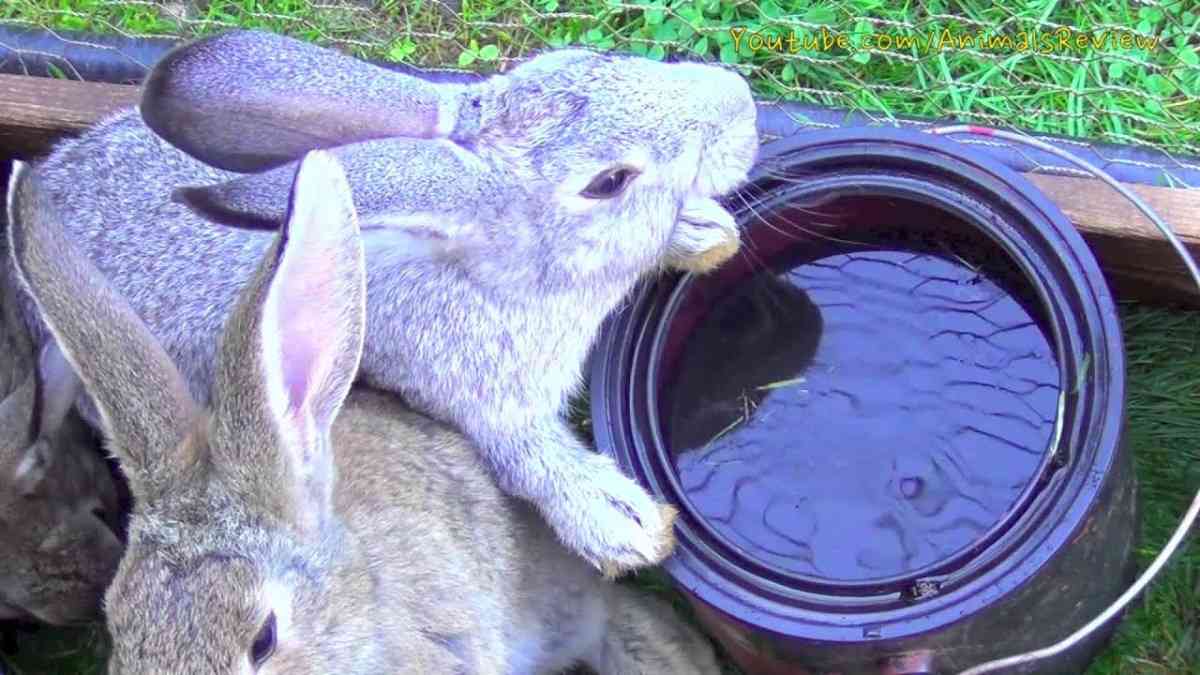
Obviously rabbits can not lack water, so we will make it new every day. But something very important is to check the drinking fountain daily or the coldest days. It is essential to do this because you can freeze and not drop the water. So try to check the drinking fountain frequently.
Exercise during less cold hours
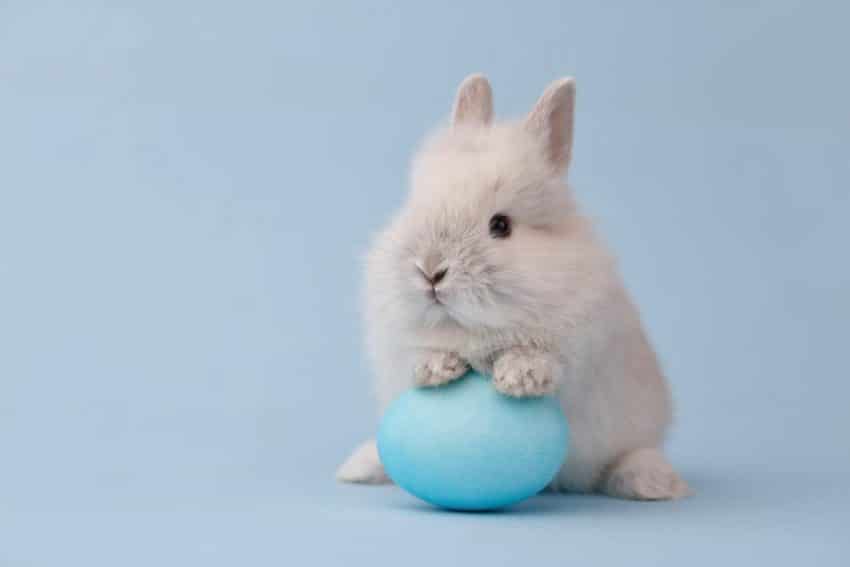
Rabbits need to stretch their legs, play and exercise. Do not leave your rabbit in the rabbit hutch all day. It is good for rabbits to chase where they can, but in the cold months it is not good that they are at any time. Find the hours where it is less cold and free your rabbit. If where you live is too cold at all hours, you can let your rabbit use a room in the house or another indoor area to exercise. Of course, try to collect cables and books because, as rodents they are, they may nibble a little.
Do you have to bathe the rabbit in winter?
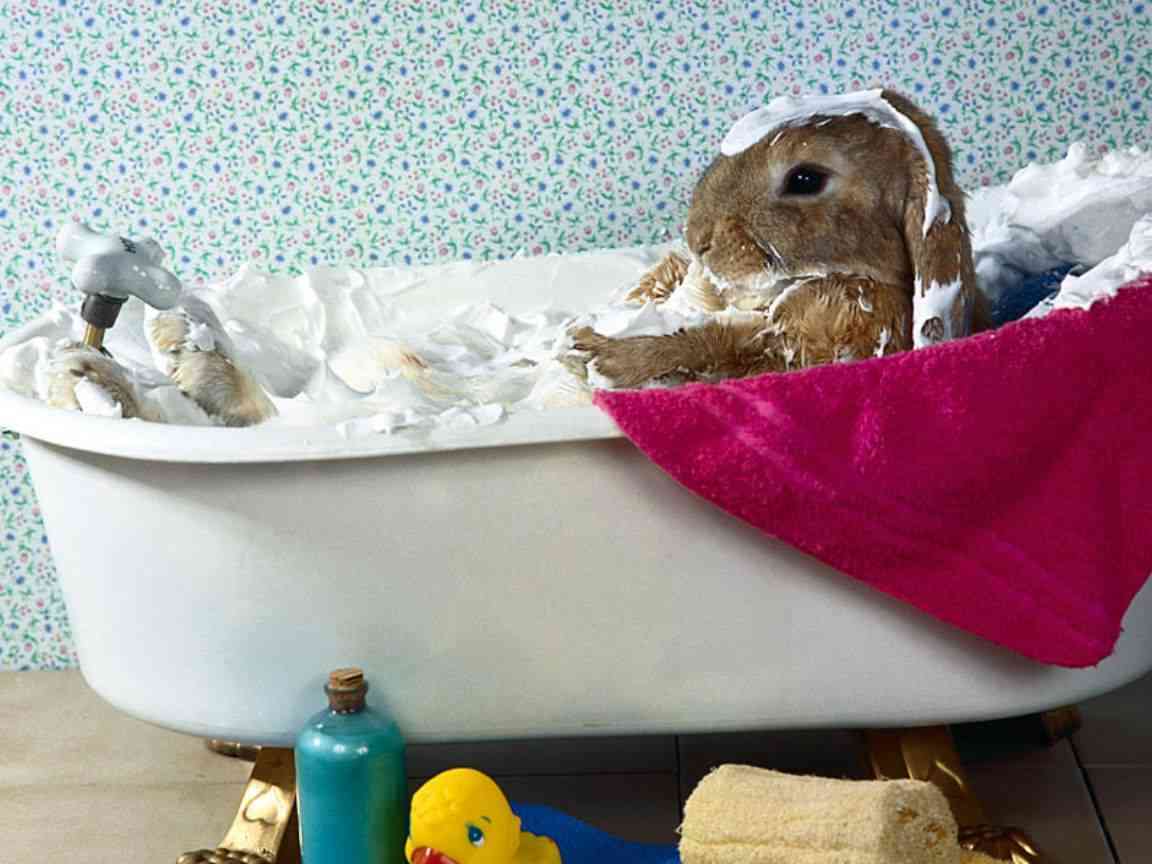
If you do not see yourself in another than bathing your rabbit in winter, try to dry your hair well before taking it outside. If your rabbit is wet, don’t take it out. You can also use a special dry shampoo for them.
Monitor the temperature of the indoor rooms
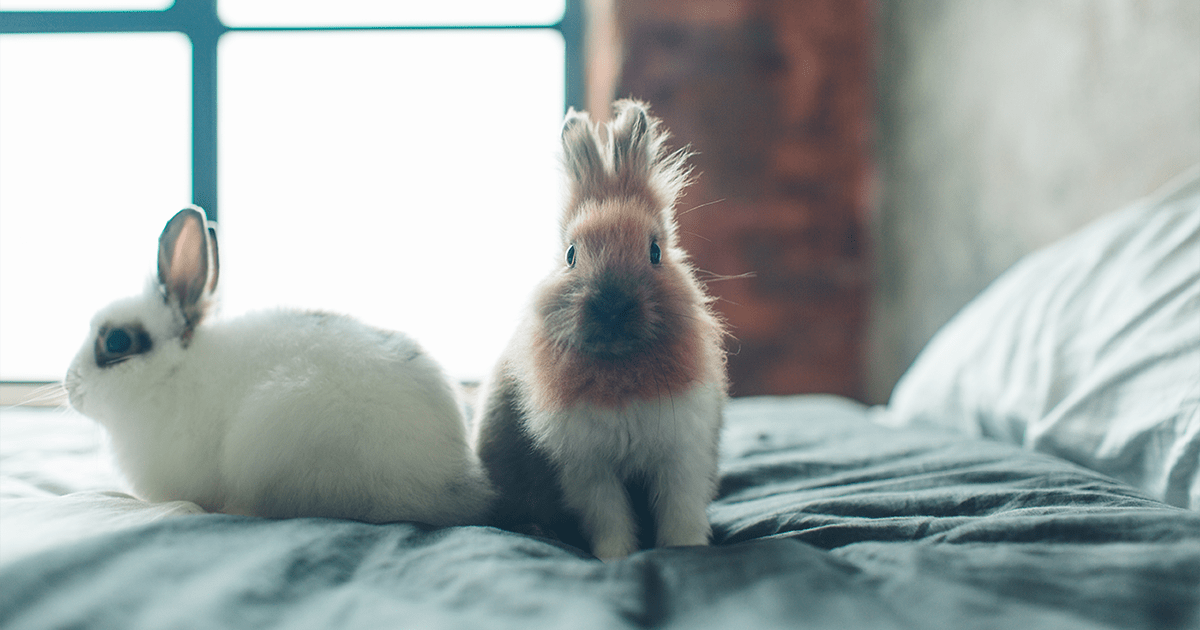
If your rabbit does not go outside or simply it is very cold and you have it inside you should also check the temperature of the room. If it is too hot with stoves or similar it may have a heat stroke.
What happens if your rabbit lives indoors?
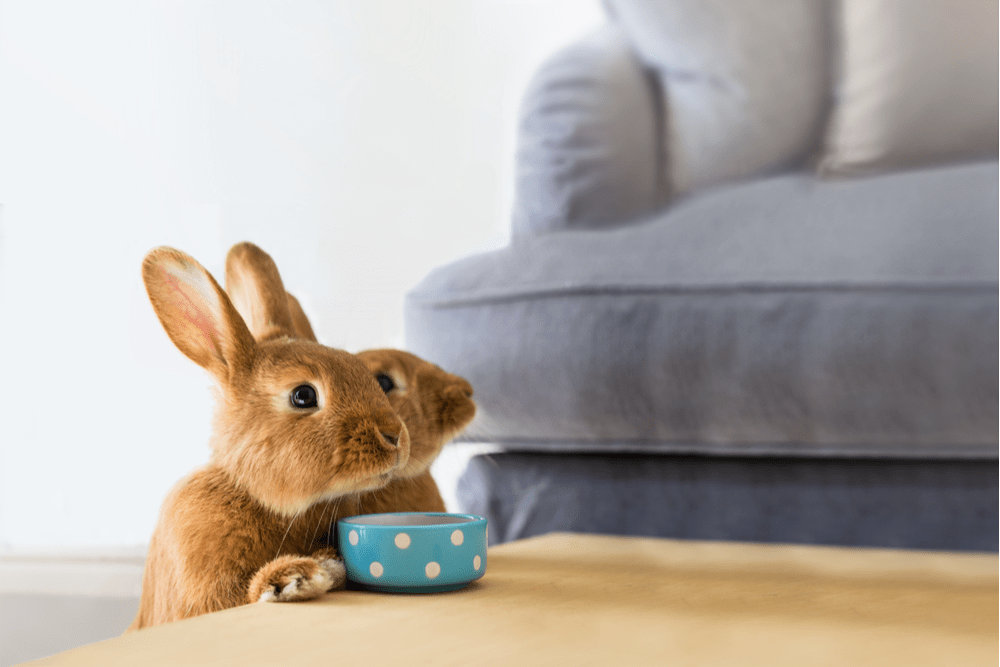
Rabbits that live indoors usually do not develop more fur or keep this one for winter. Inside rabbits do not need this, so if you take them out they will be even colder than outdoor rabbits.
How to know if a rabbit is cold?
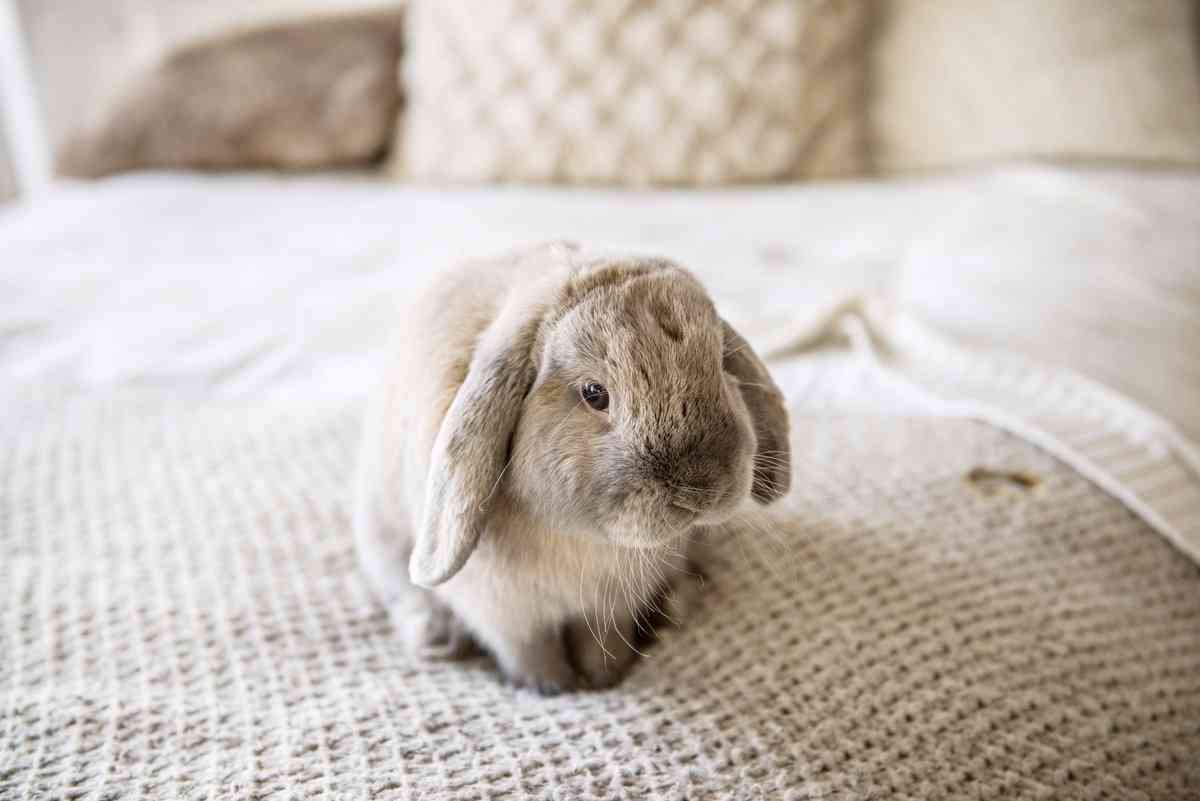
The body temperature of rabbits is between 38 ºC and 40 ºC, and the optimum temperature for its environment should be around 18 ºC. If the temperature drops sharply, we can observe some of these symptoms:
- Tremors
- snout and cold ears
- cramps,
- muscular stiffness,
- Dry Skin,
- shortness of breath and slow breathing
- slower movements
- clumsiness
- inactivity.
Signs of hypothermia
If the rabbit’s body temperature is below 36 ° C, characteristic symptoms of hypothermia may occur. Some of the symptoms of hypothermia in rabbits are:
- Loss of appetite
- Heart rate reduction
- Dilated pupils
- Stare
- Depression
- Disorientation
- Fainting
- Collapse
- Sudden death
What to do if my rabbit is cold?
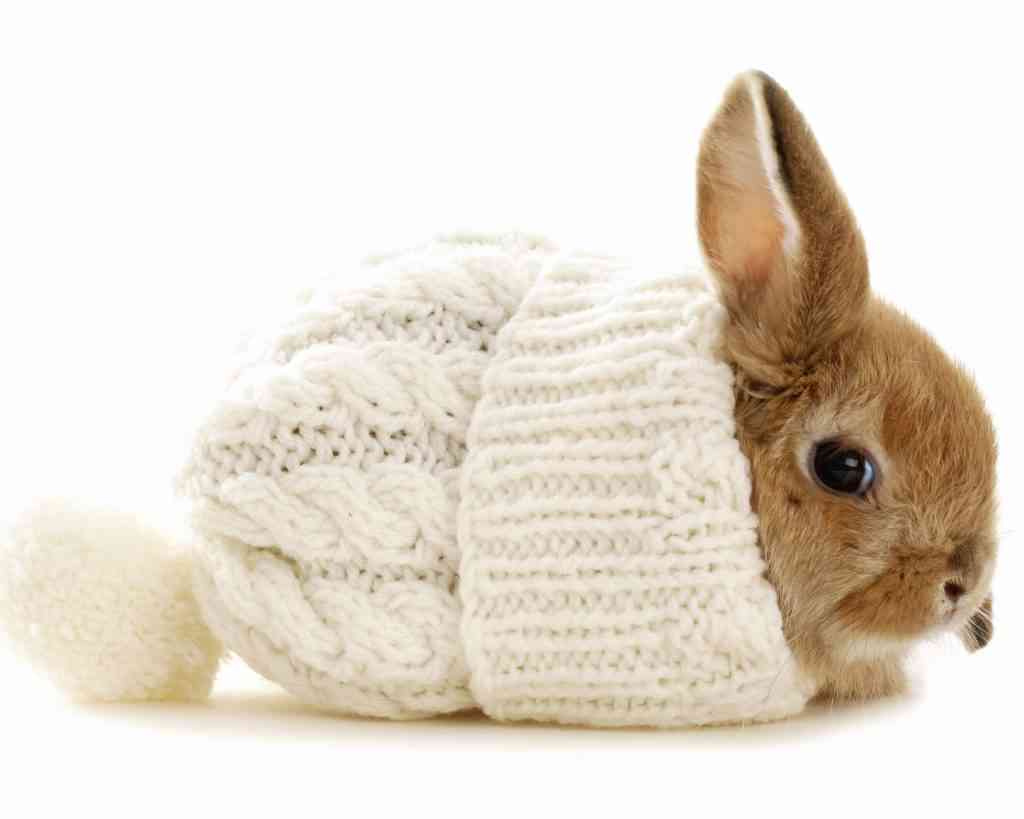
If your rabbit is cold, before it enters hypersermia, we must wrap the rabbit with a blanket and shelter it. We can put it near our body to give it heat.
If your rabbit has been wet in winter, before wrapping it we should dry it well with a towel. It is very important not to use the typical thermal pads since the combination with moisture and electricity could be dangerous. As we do not want burn risks, it is better to use a dry towel.
When your rabbit is cold or wet, we will try to put it inside the house. But if your rabbit shows symptoms of hypersermia it is better to take him to the emergency room immediately.
Do rabbits hibernate?
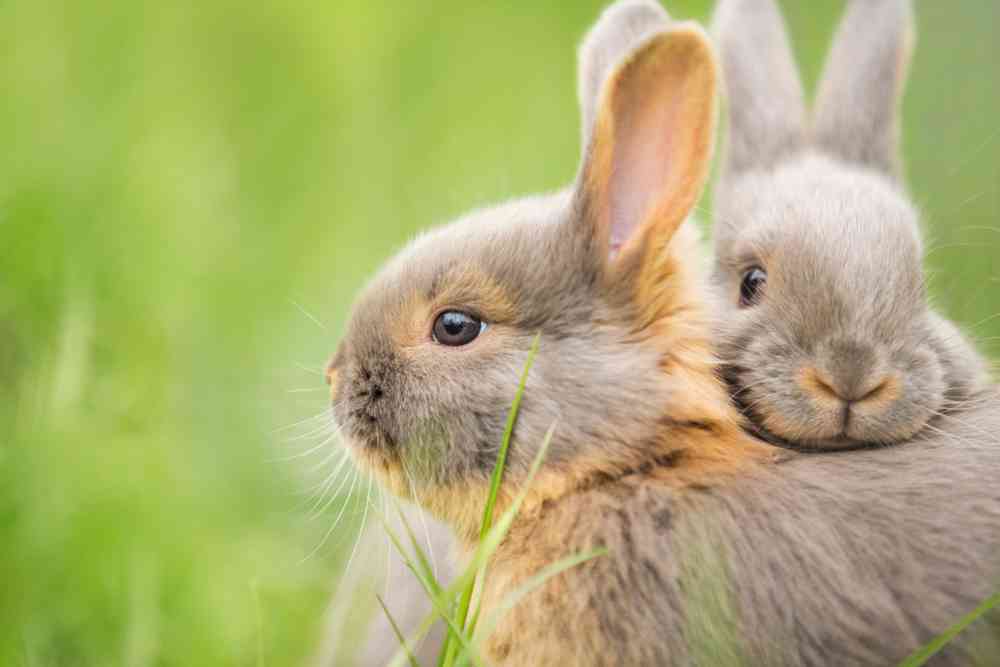
No, keep in mind that no type of rabbit hibernates. In this way, if yours seems apathetic or sleepy, it can be a sign that indicates that you have to take it to the veterinarian.
Have you been useful this care of a rabbit in winter? Are you looking for dog food recipes? Do you want to travel with your pet? Do you want to take a look at the oral health of dogs?

